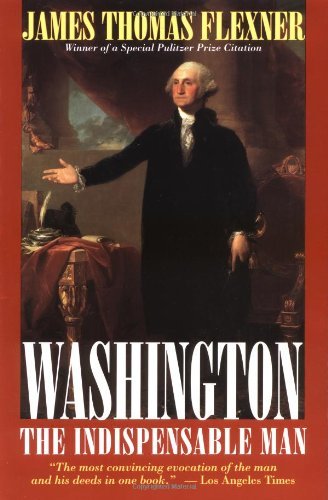
Being George Washington
Book Description
What if you could step into the shoes of one of history's greatest leaders? "Being George Washington" plunges you into the mind and struggles of the man who shaped a nation. Feel the weight of impossible choices, the tension of loyal alliances, and the heartbreak of betrayal as Washington navigates the revolutionary battlefield and the intricacies of leadership. Experience a gripping narrative that blends rich historical detail with an urgent call to consider the moral dilemmas of power. Can one man’s vision withstand the chaos of a fledgling democracy, or will the cost of freedom prove too great?
Quick Book Summary
"Being George Washington" by Glenn Beck immerses readers into the life and mind of America's first president, focusing on the personal and public challenges Washington confronted during the Revolutionary Era and the early days of the United States. Rather than offering a traditional biography, Beck invites readers to view history through Washington's eyes, contemplating the moral, political, and emotional weight of his decisions. The book draws on vivid storytelling to portray key moments in Washington’s military and political career, revealing the depth of his character and the values that steered him through crisis. Beck’s narrative encourages readers to reflect on the enduring qualities of leadership, integrity, and resilience, and poses timeless questions about the cost of freedom and the nature of true greatness.
Summary of Key Ideas
Table of Contents
Moral Dilemmas of Leadership
The narrative begins by placing readers directly into the uncertainty and danger of the Revolutionary War. Washington faces daunting odds—outmanned, outgunned, and aware that failure could mean death as a traitor. Events like the retreat from New York and the crossing of the Delaware illuminate Washington's willingness to make unpopular, risky decisions when the stakes are highest. Beck conveys the emotional and psychological weight that came with each choice, emphasizing the loneliness inherent in true leadership and the reliance on personal virtue to see a cause through.
Courage and Sacrifice in the Revolution
Washington's immense courage is highlighted not only on the battlefield, but also in the patience and forbearance he exhibited towards his own allies, who often doubted or second-guessed his strategy. The book delves into moments of betrayal, such as Benedict Arnold's defection, and explores how Washington managed disappointment and maintained focus. His resilience becomes a recurring theme, revealing that the fight for independence was as much about inner fortitude as military might.
The Burden of Command
Beck explores Washington's moral compass and his dedication to principle, particularly in his resolve to place the nation before personal gain. The book examines difficult choices, such as whether to campaign aggressively or accept short-term losses for long-term advantage. Washington’s refusal to seize monarchical power and his voluntary relinquishing of command are studied as ultimate demonstrations of integrity and self-restraint, providing readers with profound lessons in dignity and ethical leadership.
Upholding Character and Integrity
As president, Washington confronted the challenge of governing a fractured, uncertain nation. He navigated political infighting, sectionalism, and external threats, all while setting precedents for successors. Beck uses Washington’s presidency to illustrate the burdens that come with laying the constitutional groundwork for democracy. The fragile experiment that was the United States depended on his moral authority and judgment, and the book contemplates the heavy cost—personal and political—of such pioneering leadership.
The Cost of Founding a Nation
The book concludes by urging readers to draw parallels between the dilemmas of Washington’s era and those faced by contemporary leaders and citizens. By walking through Washington’s greatest trials, Beck calls on Americans to appreciate the sacrifices required for freedom and to recognize the attributes that make enduring leadership possible. The narrative serves as both a tribute to Washington’s character and an invitation to embody similar virtues in moments of modern uncertainty.
Download This Summary
Get a free PDF of this summary instantly — no email required.





